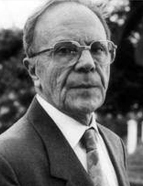

Serrão’s participation was noteworthy for the diversity of the themes he broached: literary criticism, short essays on poetry, pedagogy, the state of Portuguese intellectuality, etc. Of particular note is an article entitled “Carta a Antero de Quental» [Letter to Antero Quental], in which he unveils to the author of Causas da Decadência dos Povos Peninsulares [Causes of the Decadence of Iberian Peoples] the path taken by philosophy since his death, and how 19th-century idealism had been vanquished by “a serenely scientific attitude” to reality which he associates with Henri Pirenne and Marc Bloch, among others (Horizonte, no. 5, April 1942).
At the time, his main interests lay more in literature and philosophy than in history. His graduate dissertation on History and Philosophy of Science attests to this: Ensaio sobre a unidade do real objecto [Essay on the unity of the real object]. It was during this initial stage of his academic life that Joel Serrão laid the foundations for the reasoning that greatly influenced his historiographical works. His work was therefore a fruitful osmosis of his literary, philosophical, and historical interests.
Serrão’s thinking was influenced by a wide group of Portuguese intellectuals (Antero de Quental, António Sérgio, Jaime Cortesão, Vieira de Almeida) in addition to the French historiography of the Annales, passed on to him by Magalhães Godinho, one of his professors. These influences may also be observed, overall or partially, in other historians who attended the Faculdade de Letras de Lisboa [the Lisbon Faculty of Arts] around the same time. A. H. de Oliveira Marques referred to them as “the 1939-45 generation” or “the Lisbon school” in view of this new message they had brought to national historiography and also since they were of approximately the same age (Ensaios de Historiografia Portuguesa [Essays on Portuguese Historiography], 1988, 49 and ss). According to Oliveira Marques, this generation also shared a Marxist background (a debateable characteristic, one might add). Undoubtedly, some of its leading figures favoured a kind of history that was more attentive to social and economic phenomena over history in its entirety, based on interdisciplinarity and a comprehensive vision of social phenomena. They were steeped in the need to reconcile history with civic action, in line with António Sérgio’s theory.
